Products You May Like
Welcome back to This Week in Apps, the weekly TechCrunch series that recaps the latest in mobile OS news, mobile applications and the overall app economy.
Global app spending reached $65 billion in the first half of 2022, up only slightly from the $64.4 billion during the same period in 2021, as hypergrowth fueled by the pandemic has slowed down. But overall, the app economy is continuing to grow, having produced a record number of downloads and consumer spending across both the iOS and Google Play stores combined in 2021, according to the latest year-end reports. Global spending across iOS and Google Play last year was $133 billion, and consumers downloaded 143.6 billion apps.
This Week in Apps offers a way to keep up with this fast-moving industry in one place, with the latest from the world of apps, including news, updates, startup fundings, mergers and acquisitions, and much more.
Do you want This Week in Apps in your inbox every Saturday? Sign up here: techcrunch.com/newsletters
Mobile users are spending 4-5 hours per day in apps
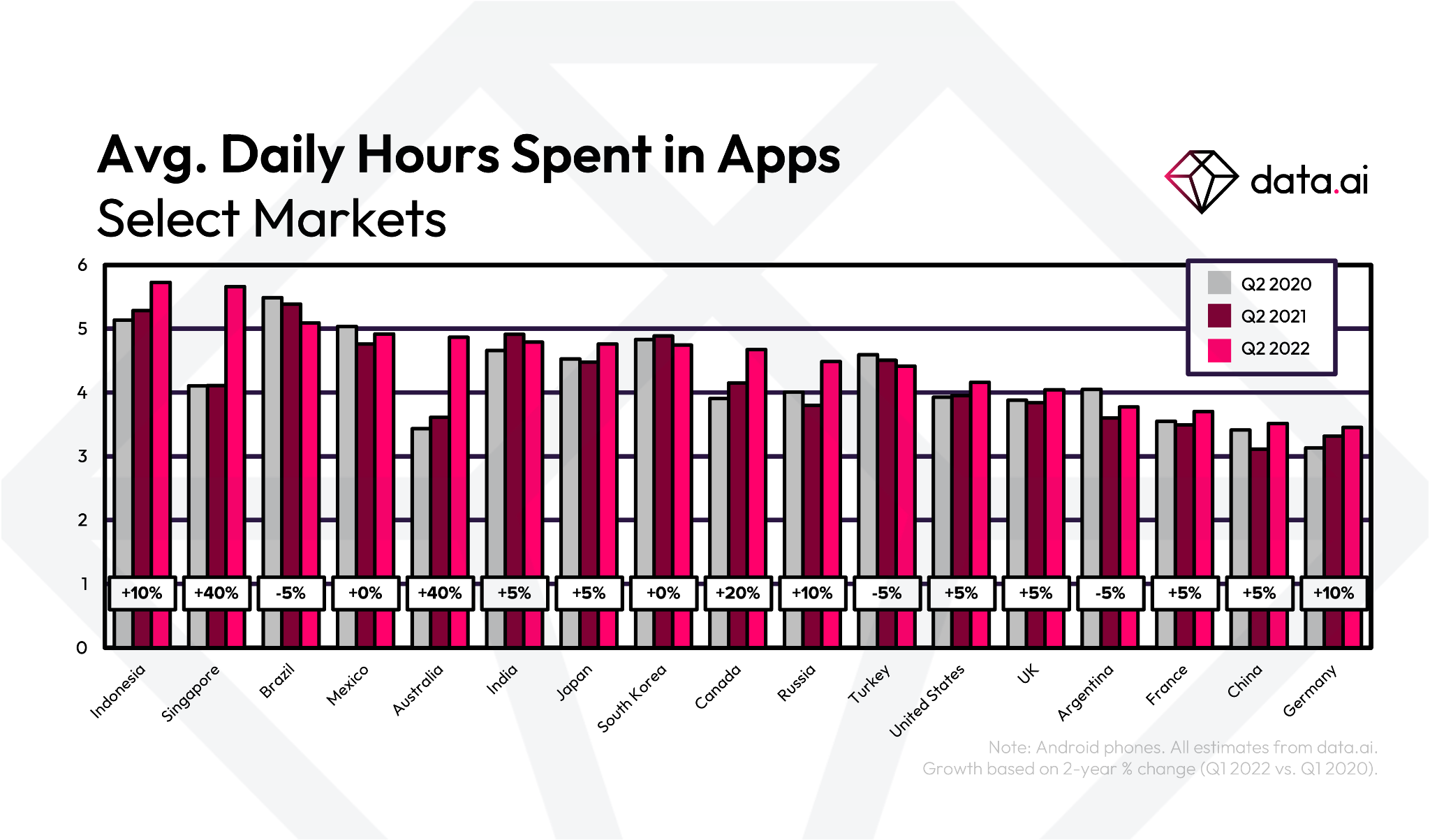
Image Credits: data.ai
Looks like we’re all still addicted to our apps! A new report this week from data.ai (previously App Annie), found that consumers in more than a dozen worldwide markets are now spending four to five hours per day in apps. While the daily time spent in apps varies by country, there are now 13 markets where users are spending more than four hours per day using apps. These include Indonesia, Singapore, Brazil, Mexico, Australia, India, Japan, South Korea, Canada, Russia, Turkey, the U.S. and the U.K.
And, in three of those markets — Indonesia, Singapore and Brazil — mobile users are spending more than five hours per day in apps.
While the growth in app usage has slowed a bit from the second quarter in 2020, it’s worth noting that two years ago was the height of COVID lockdowns, which drove app usage to spike across all categories as users worked, shopped, banked, gamed and studied, and attended meetings, school and events from home. If anything, that means the slowdown in growth seen in a couple of the markets is only representative of a normalizing of trends, not a larger decline.
And some markets saw significant growth in app usage over the past two years. In the second quarter of 2020, Singapore users were spending 4.1 hours in apps. Now that’s grown to 5.7 hours. In Australia, users went from 3.6 hours to 4.9 hours from Q2 2020 to Q2 2022. Both represent a 40% rise in time spent.
French iOS developers sue Apple over App Store fees
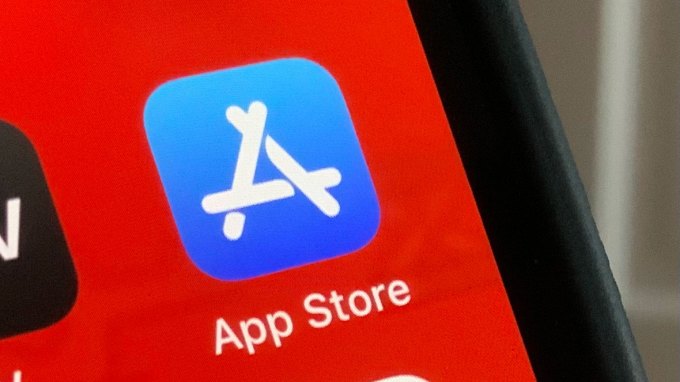
Image Credits: TechCrunch
Apple is facing another antitrust lawsuit over its App Store fees, this time filed by a group of French iOS app developers who are suing the tech giant in its home state of California. The plaintiffs are accusing Apple of anti-competitive practices in allowing only one App Store for iOS devices, which gives it a monopoly in iOS app distribution and the ability to force developers to pay high commissions on in-app purchases.
The complaint argues that these commissions, on top of Apple’s $99 annual developer program fees, cut into developers’ earnings and stifle innovation — and yet developers aren’t permitted to offer alternative payment methods per Apple’s App Store rules, nor can they distribute their apps to iOS users outside of the App Store, despite Apple allowing this on Mac computers.
The case is now one of several antitrust legal battles Apple is facing, including the high-profile lawsuit with Fortnite maker Epic Games, which is under appeal, and another by alternative app store Cydia.
Developers involved in the class action include Société du Figaro, the developer of the Figaro news app; L’Équipe 24/24, the developer of L’Équipe sports news and streaming app; and le GESTE, a French association comprised of France-based publishers of online content and services, including iOS app developers.
Of note, the case is being led by U.S.-based Hagens Berman law firm, which last year won a $100 million settlement against Apple over App Store policies and recently filed a $1 billion case against Apple over antitrust issues with Apple Pay. The lawyer involved also previously secured a $560 million settlement against Apple regarding e-book price-fixing and a $90 million settlement on behalf of Android developers. In France, Paris-based antitrust lawyer Fayrouze Masmi-Dazi is helping manage the claims.
New data on in-app subscriptions shows the first month is key
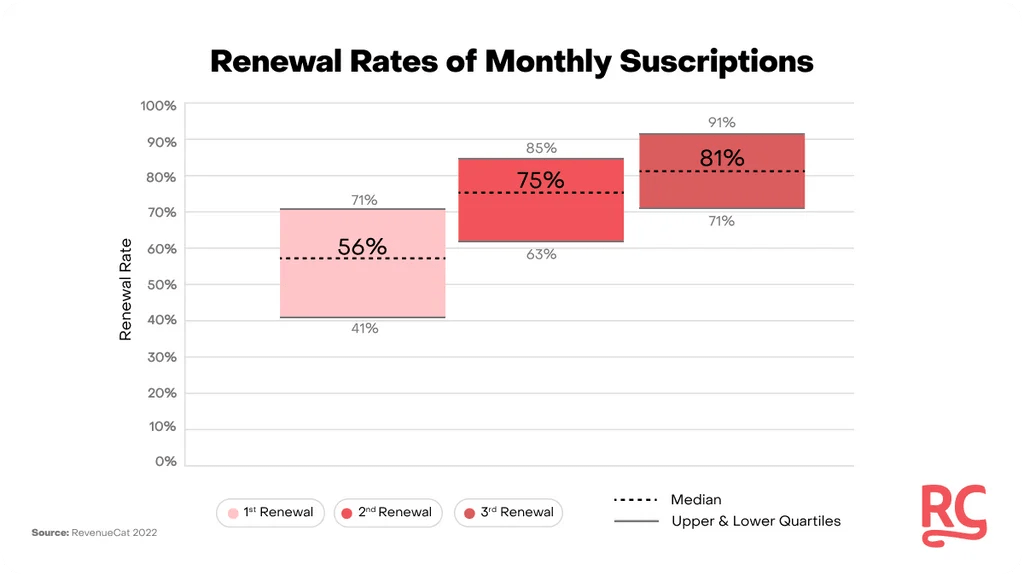
Subscription management service RevenueCat took a deep dive into more than 10,000 subscription apps across iOS and Android to see how subscription renewal rates stacked up. It found that monthly subscriptions had a median first renewal rate of 56%, which would increase over time. In other words, customers who didn’t get value from the app would churn in the first month — an indication of how important it is to convince users of that value in their first days using the service. In subsequent months, renewals were higher — 75% or 81% for the second and third months, for instance.
The company analyzed its own customer base data for the analysis, but notes it’s not showing all renewals on RevenueCat, as that would bias the data toward larger customers, like VSCO. Instead, it looked at the median of each individual app’s renewal rates.
In addition, RevenueCat developer advocate David Barnard pointed out that a lower renewal rate may not necessarily be a bad thing, depending on the business. For instance, if the developer was acquiring users organically at a low cost, a lower rate could be better than a higher renewal rate with expensive customer acquisition costs.
Platforms: Apple
- Apple is expanding its App Store ads. The company previously offered two ad slots, on the main Search tab and in the Search results. The new ad slots will be available on the App Store’s Today tab and at the bottom of individual app pages in the “You Might Also Like” section.
- Bloomberg reported that iPadOS 16 will be delayed about a month as Apple works on its multitasking features. The report says this would put the release in October, alongside macOS Ventura.
- A new report indicates iOS has lost 4% of ad spend market share since the launch of ATT, which makes targeting advertising more difficult for iOS developers. Its share dropped from 34% in April, down 4% YoY according to Adjust.
- Digiday reports Apple may be building its own demand-side platform, based on a job posting looking for a senior manager for a DSP in its ads platform business. Apple’s DSP may be focused on serving ads on its own properties, like the App Store, but the company declined to confirm details.
Platforms: Google
- Google revealed the finalists for the Indie Games Festival, which highlights some of the best games on Google Play. This year, the company is hosting the Festival in South Korea, Japan and Europe for local developers on September 3. At the European finals, Google will also reveal the 2022 class joining the Indie Games Accelerator, a program that provides indie game devs with training and mentorship.
- Google offered a guide to Android developers as to how to support predictive back gestures, as it’s making an early version of the UI available for testing with Android 13, Beta 4.
E-commerce
- Facebook’s live shopping feature is shutting down on October 1 to shift the company’s focus to Reels. After this date, users will no longer be able to host new or scheduled live shopping events, but they’ll still be able to use Facebook Live for other live events — but won’t be able to create product playlists or tag products in those streams.
Fintech
- Coinbase partnered with BlackRock, which oversees $10 trillion in assets, to provide its institutional clients with access to cryptocurrency.
- Starbucks Rewards, the coffee company’s loyalty program that doles out perks for customers’ purchases, will expand to include NFT rewards as part of a broader web3 push. The company said it’s being advised by Starbucks Mobile Order & Pay architect Adam Brotman on the effort, where NFT rewards will translate into exclusive content and “one-of-a-kind” experiences.
- The SEC is probing trading app Robinhood’s compliance with short selling rules. The SEC has been investigating since October 2021 and requested additional info from the company in Q2 2022. Robinhood also announced headcount reductions of 23% after posting a $295 million quarterly loss. In addition, New York’s State Dept. of Financial Services fined Robinhood’s crypto unit $30 million for violating anti-money laundering and cybersecurity regulations.
- An exploit in the Slope mobile wallet was possibly to blame for a major network attack that saw thousands of wallets drained of millions of dollars.
- iOS 16 beta 4 added support for Apple Pay in non-Safari browser apps including Chrome, Firefox and Edge, likely in response to the EU’s Digital Markets Act.
Social
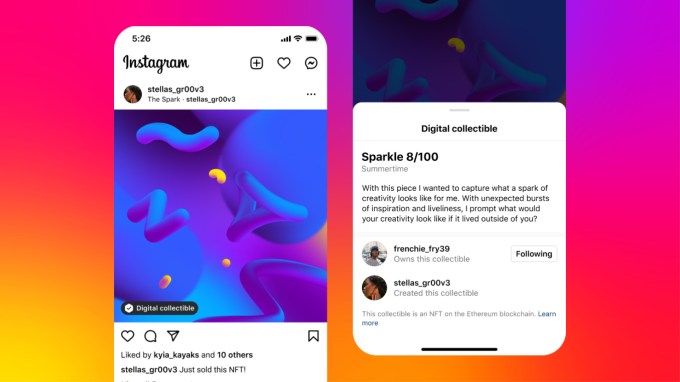
Image Credits: Instagram
- Instagram expanded support for NFTs to more than 100 countries in Africa, Asia-Pacific, the Middle East and the Americas after first launching a test of the new feature in May. Users will be able to connect their digital wallet, and share NFTs to the Feed, Stories or in messages. They can also automatically tag creators and collectors for attribution. The feature relies on Coinbase Wallet and Dapper integrations and the Flow blockchain.
- Instagram head Adam Mosseri is temporarily moving to London to work from Meta’s King Cross offices as the company rethinks how to shape its plan to take on TikTok with Reels.
- TikTok is on track to overtake Facebook in influencer marketing spend in 2022, and will overtake YouTube by 2024, per an analyst report. However, Instagram this year will still capture 3x the influencer marketing dollars as TikTok, or $2.23 billion versus TikTok’s $774.8 million.
- The Washington Post reported video entertainment app Triller failed to make promised payments to a number of Black creators. Triller denied the claims.
- Discord announced it will finally bring its Android app into parity with its iOS counterpart. The new Android app has been rebuilt with React Native, which will allow it to expedite new feature releases and bug fixes.
- Pinterest missed on earnings and delivered zero user growth in its most recent quarter — it’s stuck at 433 million MAUs. The company cited a combination of factors for its issues, including the lingering impacts of the pandemic, reduced traffic from search engines, the rise of TikTok and — like many companies reliant on digital advertising, the broader economic environment. Still, the stock popped on the news (up 20% after hours) as revenue was close to expectations ($664.9 million) and the company was praised by new investor Elliott Investment Management.
- Pinterest also began testing a new app, Shuffles, for collage-making and leaderboards. But the app, which includes image cut-out features and animation, requires an invite for the time being.
- A top anonymous social app, NGL, which hit the top of the App Store earlier this summer, was forced to adjust its app to stop tricking users into thinking they had received messages from friends, when really a bot was delivering them. Both it and rival Sendit also changed their subscriptions to include more features than just “hints” about who was sending the messages.
Dating
- Match Group said Tinder CEO Renate Nyborg is leaving after less than a year and it’s reorganizing the app’s management team after disappointing earnings. It also said it’s not moving forward with plans for Tinder Coins, its virtual currency, nor its plans for a dating metaverse. The company wanted to characterize this stoppage as merely a pause, but did not offer any sense as to if or when it would revisit these ideas. Instead, the company spoke of plans to introduce shorter-term subscriptions on Tinder while it tries to figure out why it couldn’t convince new people to try dating apps.
- TikTok-style dating app Desti launched to match up users by fav date destinations, initially in its debut market of Austin.
Messaging
- Kakao blamed Google’s new payment policies for a decline in the number of emoji subscription purchases on the messaging app KakaoTalk. The figure dropped by a third over the year, the South Korean app maker said in its quarterly earnings call Thursday.
- Google is merging its Meet and Duo apps. Duo is being rebranded as Meet (the mobile app will be updated with the new branding). This will include features from both of the apps. Meet will be called Google Meet (original) and will be eventually phased out in favor of the new Meet. Not confusing at all!
- Brazilian prosecutors asked WhatsApp to delay the launch of the Communities feature in Brazil until January in order to avoid spreading misinformation about the October election.
Streaming & Entertainment
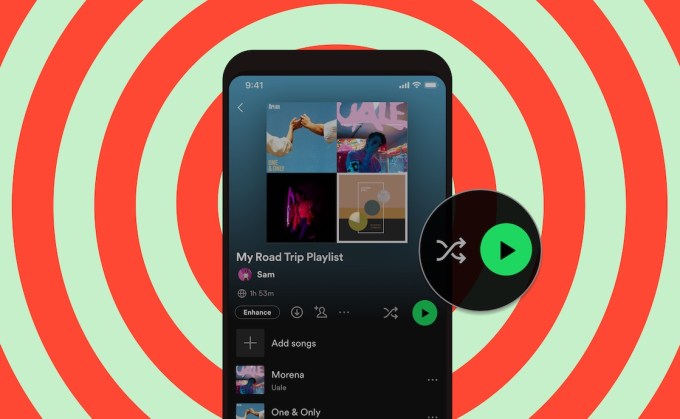
Image Credits: Spotify
- Spotify updated its app to address a long-standing user complaint with music playback — but it’s asking customers to pay for the fix. The company announced it will introduce a separate Play Button and a Shuffle Button at the top of albums and playlists to make it easier to play the music the way you like. This replaces the combined button available before. However, the new button is only being offered to Spotify Premium subscribers, despite arguably being a UI/UX issue that should be available to all.
- Clubhouse began beta testing a new feature, private communities called Houses, which allow a group of friends to hang out, catch up, hop from room to room and more. The Houses can be kept private and closed or users can each nominate a few friends to join.
- Spotify’s biggest playlist is getting its own video podcast. The company said Brandon “Jinx” Jenkins, the podcast host of “Mogul” and “No Skips,” will host the new “RapCaviar Podcast.” The new video podcast will explore the rap genre and include panels of guests.
- SoundCloud announced it was laying off 20% of its global workforce due to the challenging economic environment. Staff in the U.S. and U.K. will be informed if they’re impacted.
- TikTok has been filing “TikTok Music” trademarks in global markets, suggesting the company is considering a launch of some sort of music streaming service similar to its existing service in select markets known as Resso.
Gaming
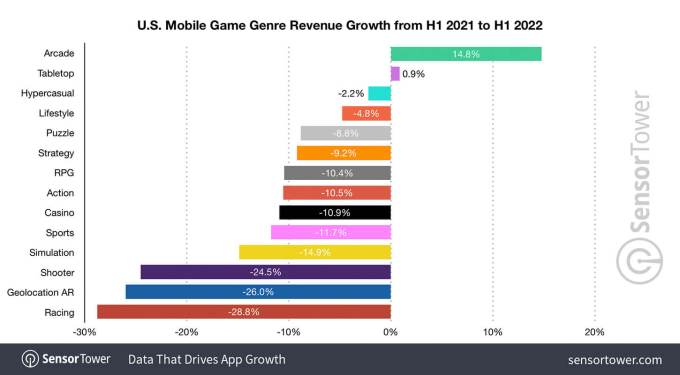
Image Credits: Sensor Tower
- A new report indicates most mobile gaming genres saw revenue declines in the U.S. during the first part of the year. According to Sensor Tower, Arcade and Tabletop games were the only categories with revenue growth. Arcade was the fastest growing genre, with player spending up 14.8% year-over-year to approximately $176 million. Top games included Clawee, Gold & Goblins and Idle Mafia. Tabletop grew 1% YoY to $388.8 million. However, in terms of revenue, Puzzle was the largest with $2.3 billion, down 8.8% YoY. It was followed by Casino ($2.2 billion) and Strategy ($2 billion). Gaming downloads also declined 2.5% YoY to 2.4 billion.
- Apple Arcade added a handful of new games to the service, including the popular Jetpack Joyride, as well as Amazing Bomberman, My Talking Tom+ and Love You to Bits+. The company also recently pulled 15 games from the subscription service.
- Blizzard and NetEase scrapped plans for a World of Warcraft mobile game after a disagreement over financial terms for the title, Bloomberg reported. NetEase disbanded a team of more than 100 developers tasked with creating content for the game — only some of whom were given internal transfers.
- Amazon’s cloud gaming service, Luna, which allows users to play on mobile, tablet, PC or Mac, now supports Samsung Gaming Hub on Samsung’s smart TVs and monitors.
Transportation & Travel
- Uber partnered with the Berlin-based travel service Omio in order to test train and bus bookings in its U.K. app. Omio’s inventory includes more than 1,000 transport providers.
Utilities & Productivity
- Google Maps and Search apps now allow merchants to label their businesses as “Asian-owned,” following similar additions that allowed labeling businesses as Black-owned, Latino-owned, veteran-owned, women-owned or LGBTQ+-owned.
- Microsoft launched a new Outlook Lite app for low-powered Android phones aimed at users in emerging markets.
Government & Policy
- The European Commission is investigating Google Play’s policies over possible antitrust issues, according to Politico. Specifically, the investigation is looking into billing terms and developer fees, the report said.
Security & Privacy
- Security researchers found an error in more than 3,200 mobile apps, which would allow them to take full or partial control of Twitter accounts. The names of impacted apps have not yet been disclosed.
- A ruling by European Union’s top court may have major implications for online platforms and apps that use background tracking and profiling to target users with behavioral ads or for personalizing content. It set a precedent that even this inferred data derived from things a company learned about a user could be considered personal data.
💰 Dating app Desti raised $1 million in early-stage funding in July at a $5 million valuation. The company also makes a related app for friends, Besti.
📉 Uber to sell stake its 7.8% stake in the food delivery app Zomato for $350 million+ after taking a $707 million loss on the deal in H2 2022.
💰 Locket, a popular app that lets you post photos to your friends’ homescreens, raised $12.5 million in seed funding from OpenAI CEO Sam Altman, Sugar Capital, Costanoa Ventures, along with Instagram co-founder Mike Krieger and Quora CEO Adam D’Angelo.
Banish
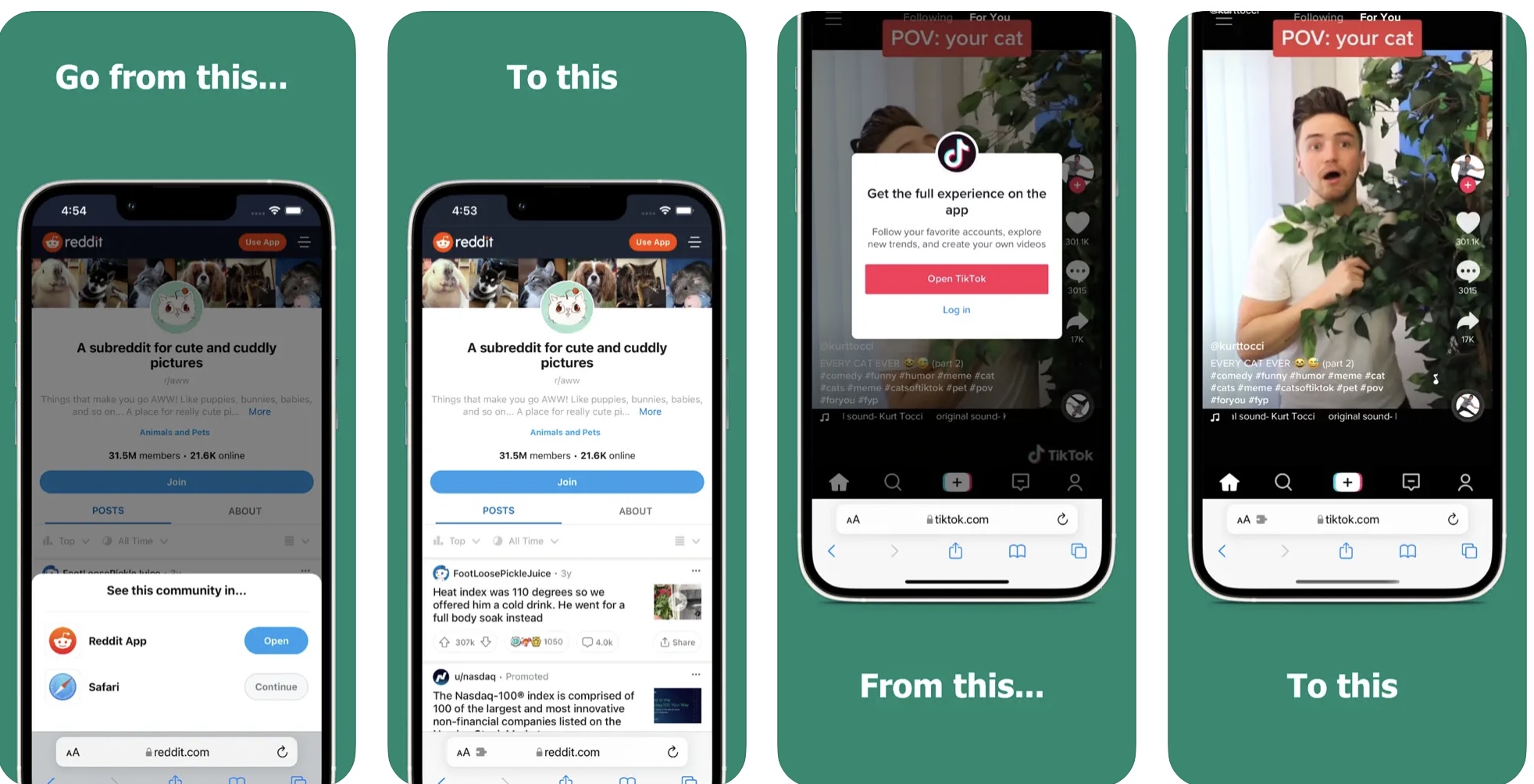
A new app for iPhone users can help you browse the web without being constantly bothered by pop-up panels that beg you to use the company’s app instead. The app, called Banish, is a Safari extension that helps remove the “open in app” banners from various websites and other popups that block content across a number of sites, like Reddit, TikTok, LinkedIn, Twitter, Quora, Medium, Yelp and some Google sites, to name a few.
While there are a number of similar Safari extensions for blocking cookie banners and ads, the scourge of the “Open in App” banners is often not addressed by existing solutions.
To use Banish, you’ll first install the app to your iPhone, then configure it in the Settings. This involves a few key steps for Banish to function properly. There are two places where Banish needs to be enabled, under Safari Extensions — you need to toggle on the switch next to Banish under “Allow These Content Blockers” and “Allow These Extensions.” Then you need to set the “Allow” permission to “All Websites” below. You can read more about Banish here on TechCrunch or download it from the App Store for $1.99.

